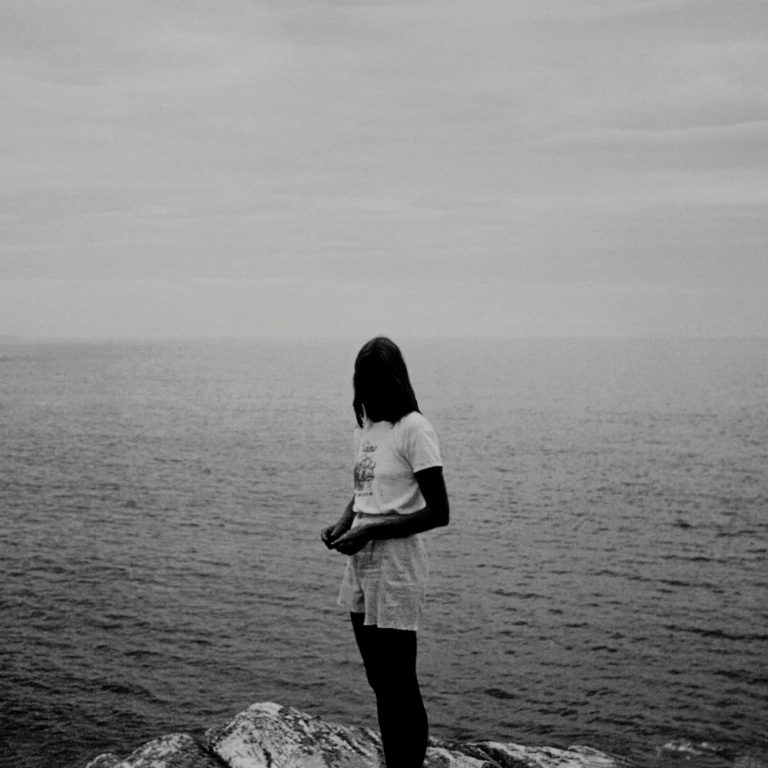With her new album, Luminol, singer, producer, and multi-instrumentalist Madeline Johnston, working under the moniker Midwife, hones the mantric, dreamy, and doom-infused templates of 2020’s Forever. Throughout Luminol’s six tracks, Johnston demonstrates her gift for hypnotic riffs and atmospheres that are at once celestial and disconcerting. Lyrically, she employs mostly diaristic declarations, voicing states of disempowerment, isolation, and self-loathing.
On the album’s opener, “God Is a Cop”, Johnston resignedly repeats the line, “I can’t kill the evil thought,” perhaps alluding to a suicidal impulse and the fundamental human ambivalence: the will to live vs. the wish to die or, more precisely, cease being. Midway into the song, a shimmering yet wiry electric guitar part is added and placed high in the mix, the track’s blend of reverb and compression resulting in a sound that is concurrently narcotizing and agitative, spacious and claustrophobic.
While “God Is a Cop” references psychological or existential dystopia, the following “Enemy” addresses betrayal by the body, employing the metaphor of an autoimmune disorder to reiterate that human life is inherently conflicted: “My body is against me / my body wants to kill me.” Instrumentally and vocally, “Enemy” features a striking amalgam of elegance and nightmarishness / vulnerability and jadedness that brings to mind Kristina Esfandiari’s work under the Miserable and King Woman monikers.
“2020” borrows the line “And it feels like heaven is so far away” from the 1997 hit by The Offspring, Johnston transforming the hook-y lament into a drone-y manifesto on unremitting loneliness. A.A. Williams’ recent cover project Songs from Isolation is an inevitable comparison, particularly the British songwriter’s brooding version of The Pixies’ pop-ish “Where Is My Mind”.
The second half of Luminol begins with “Colorado”, which opens with a composite of ambient sounds and shimmering distortion, Johnston’s use of reverb and compression again evoking a feeling of transcendent vastness and palpable contraction. Lyrically, Johnston alludes to the experience of Covid and quarantine to signify a more pervasive and trans-circumstantial sense of aloneness: “All my friends are in New York / all my friends are in LA / … how much more death can one person take?”
The album closes with “Christina’s World”, an ekphrastic response to Andrew Wyeth’s 1948 painting of the same title. While the source work integrates pastoralism and postmodern discontent, offering a commentary on changing social norms circa post-WWII, Johnston’s take is more heavily melancholic, a Grouper-esque portrait of an epically damned individual “crawling up the hill towards the house,” a sanctuary or safe zone she will probably never reach.
Going forward, Johnston will undoubtedly need to broaden her modus operandum, experimenting with a wider variety of effects and atmospherics, and expanding her lyrical range. That said, Luminol’s focused stylistics and singular aesthetic succeed overall, yielding a distinctly cohesive and compelling project while further establishing Johnston’s already recognizable brand.

